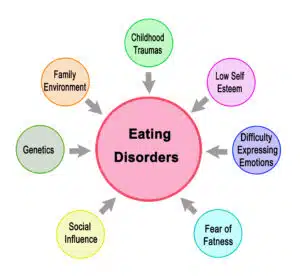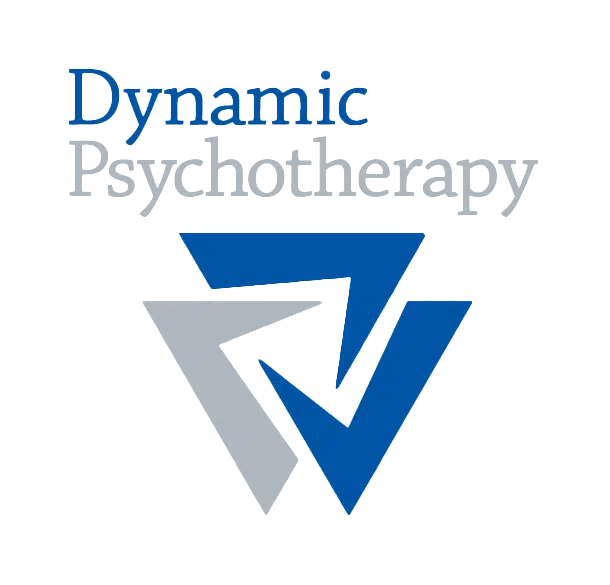Eating Disorders: How Our Melbourne Therapists Can Help

Eating Disorders Treatment in Melbourne: How We Can Help
Welcome to Dynamic Psychotherapy. If you’re reading this, you or someone you care about might be facing the challenges of an Eating Disorder (ED). It’s a journey that many find daunting, but it’s important to remember that you’re not alone. At Dynamic Psychotherapy, we’re committed to offering compassionate, expert care tailored to your unique needs.
Eating Disorders are complex conditions that affect individuals physically, psychologically, and socially. They encompass a range of behaviors concerning food, such as excessive restriction, binging, or purging. Recognising the need for help is the first step towards recovery.
The words “Eating Disorders” covers a wide range of problems. Here are some common definitions of an Eating Disorder
The World Health Organisation defines Eating Disorders as
“Eating disorders involve abnormal eating behaviour and preoccupation with food, accompanied in most instances by concerns about body weight and shape.”
Psychiatry.org defines Eating Disorders as
“Eating disorders are behavioral conditions characterised by severe and persistent disturbance in eating behaviors and associated distressing thoughts and emotions.”
Health Direct defines Eating Disorders as “An eating disorder is a serious mental health condition that involves an unhealthy obsession with eating, exercise or body shape.”
Our article below covers in-depth what an eating disorder is and how we can help. Continue reading for more information or submit an appointment request if you are ready to book an appointment.
Book Now or Learn More
Submit an intake form below or keep reading for a detailed overview of Eating Disorders and how we can help.
Meet Our Melbourne Eating Disorder Therapists at Dynamic Psychotherapy
Dynamic Psychotherapy is home to a team of therapists experienced in working with Eating Disorders. Discover our compassionate professionals dedicated to your recovery and mental well-being.
Click on an Eating Disorder Therapist to view more

Michelle Mennie
Michelle supports adults, adolescents and children who have anxiety, depression, stress, trauma, interpersonal issues, and physical health difficulties, such as pain, processing health diagnoses, and recovering from physical injuries.
Approaches:
- Intensive Short-term Dynamic Psychotherapy (ISTDP)
- Acceptance and Commitment Therapy (ACT)
- Cognitive Behavioral Therapy (CBT)
- Behavioural Therapies
- Mindfulness
- Schema Therapy

Natalie O’Connor
Natalie’s therapeutic style is warm, client centred and purposeful. Her treatment framework draws largely on short-term psychodynamic and schema-based therapies, as well as using mindfulness-based strategies to support emotional wellbeing.
Approaches:
- Acceptance and Commitment Therapy (ACT)
- Cognitive Behavioral Therapy (CBT)
- Intensive Short-Term Dynamic Psychotherapy (ISTDP)
- Behavioural Therapies
- Interpersonal Therapy
- Mindfulness
-
Eating Disorders: How Our Melbourne Therapists Can Help
- Eating Disorders Treatment in Melbourne: How We Can Help
- Meet Our Melbourne Eating Disorder Therapists at Dynamic Psychotherapy
- Click on an Eating Disorder Therapist to view more
- Why Understanding Matters
- What Are Eating Disorders?
- The Impact of Eating Disorders
- Causes and Risk Factors of Eating Disorders
- Recognising When It's Time to Seek Help
- The Psychological Journey of Eating Disorders
- Navigating Support for Eating Disorders in Australia
- Embracing Telehealth Therapy for Eating Disorders
- Reach Out to Our Team at Dynamic Psychotherapy
- FAQs About Eating Disorders
- Request an Appointment
Why Understanding Matters
Eating Disorders are more than just about food. They’re deeply rooted in psychological factors, including self-esteem, control, and coping mechanisms. Understanding the multifaceted nature of EDs is crucial in addressing the root causes and moving towards healing.
At Dynamic Psychotherapy, our experienced psychologists recognise the courage it takes to seek help. We understand the intricacies of Eating Disorders and provide a safe, supportive environment for healing. Our approach is holistic, considering every aspect of your well-being.
What Are Eating Disorders?
Eating Disorders (EDs) are serious conditions affecting millions worldwide. They involve persistent eating behaviors that negatively impact health, emotions, and the ability to function in crucial areas of life.
Recognised as a blend of psychological, physical, and social issues, EDs go beyond food habits, deeply rooted in one’s emotional well-being.
Types of Eating Disorders
Anorexia Nervosa:
It’s characterised by weight loss, difficulties maintaining an appropriate body weight for height, age, and stature; and, in many individuals, distorted body image. People with anorexia generally restrict the number of calories and the types of food they eat.
Bulimia Nervosa:
This disorder involves episodes of binge eating followed by purging to avoid weight gain. Purging methods might include vomiting, excessive use of laxatives, or compulsive exercising.
Binge Eating Disorder:
Individuals with this disorder have episodes of binge eating where large quantities of food are consumed quickly, often to the point of discomfort.
The binge-eating episodes are associated with feelings of loss of control and are not followed by purging behaviors.
The Impact of Eating Disorders
EDs can have profound impacts on physical health, including critical heart conditions, digestive issues, and severe dental problems.
Psychologically, they’re linked with an increased risk of anxiety, depression, and substance abuse. Socially, they can erode family relationships, friendships, and performance in school or work.
At Dynamic Psychotherapy, we approach these conditions with a deep understanding of their complexity.
Our experienced psychologists are ready to guide you through understanding your ED and developing personalised strategies for overcoming it.
Your well-being is our priority, and we’re here to support you on every step of the recovery journey.
Causes and Risk Factors of Eating Disorders
Understanding the causes of Eating Disorders (EDs) involves exploring a web of psychological, biological, and societal factors. No single cause can explain EDs, as they stem from a combination of genetic, environmental, and personal issues. Our therapists delve into these aspects to offer comprehensive care.
Psychological Factors
Many individuals with EDs may struggle with low self-esteem, perfectionism, or impulsive behavior. Psychological stressors, including trauma or abuse, can also significantly contribute to the onset of these conditions. It’s crucial to address these underlying issues as part of the healing process.
Biological Influences
Research suggests a genetic predisposition to EDs, indicating that these disorders can run in families. Additionally, imbalances in certain brain chemicals associated with hunger, appetite, and mood may play a role. Understanding the biological underpinnings helps us tailor our treatment approaches effectively.
Societal Pressures
Society’s emphasis on thinness, beauty standards, and diet culture can fuel dissatisfaction with one’s body and eating behaviors. The impact of social media, portraying unrealistic body images, cannot be overlooked. At our clinic, we work towards fostering a healthy body image and resilience against societal pressures.
Risk Factors
Identifying risk factors is key in prevention and early intervention. These can include a history of dieting, critical life transitions, and participation in sports that emphasise leanness. Recognizing these factors enables us to implement targeted strategies to support those at risk.
Recognising When It’s Time to Seek Help
Understanding the Signs of Eating Disorders
Noticing the early signs of Eating Disorders (EDs) is a critical step toward healing.
If you’re feeling lost in your relationship with food or if you’re concerned for a loved one, knowing what to look for can be a beacon of hope.
Here at Dynamic Psychotherapy, we’re committed to guiding you through these challenging times with empathy and expertise.
Physical Signs
Changes in weight, unusual eating habits, or discomfort eating in public could signal an eating disorder. Symptoms like constant fatigue or digestive issues are also red flags. It’s important to listen to your body and take these signs seriously.
Emotional Signals
Eating Disorders often carry an emotional toll. If you find yourself or notice a loved one overly fixated on body image, weight, or food control, it might be time for a conversation.
Feelings of isolation, sadness, or anxiety around meals are significant indicators that shouldn’t be ignored.
Behaviors That Raise Concerns
Perhaps you’ve noticed an obsession with counting calories, avoiding meals, or adhering to strict, unnecessary diets.
Or maybe there are signs of binge eating followed by guilt. These behaviors are cries for help that need compassionate attention.
Taking the First Step
Acknowledging these symptoms in yourself or a loved one can be daunting, but it’s a brave and necessary step toward recovery.
At Dynamic Psychotherapy, we see you. You’re not just a list of symptoms to us; you’re a person looking for a way back to yourself, and we’re here to walk that path with you.
The Psychological Journey of Eating Disorders
Navigating the Emotional Terrain
Eating Disorders (EDs) cast a long shadow over one’s mental and emotional landscape. Beyond their physical manifestations, the psychological impact can profoundly affect well-being, relationships, and personal growth.
At Dynamic Psychotherapy, we’re deeply committed to addressing these emotional challenges with expertise and empathy.
The Mental Health Connection
EDs are closely intertwined with mental health issues like anxiety, depression, and low self-esteem. The obsessive thoughts about weight, body shape, and food can create a relentless internal critic, making peace of mind feel out of reach.
Recognising this link is crucial in our approach to treatment, ensuring we address both the symptoms and the underlying emotional turmoil.
Social Isolation and Relationships
The strain EDs place on personal relationships is significant. Social withdrawal often occurs as individuals may feel misunderstood or judged by those around them.
This isolation can exacerbate the disorder, creating a cycle that feels hard to break. Rebuilding these connections is a cornerstone of our therapy, aiming to restore trust and understanding in relationships.
The Path to Self-Confidence
Recovery from an ED is as much about rediscovering who you are beyond your eating habits as it is about developing healthier ones.
It involves learning new ways to cope with stress, expressing emotions healthily, and reclaiming a sense of self-worth detached from physical appearance.
How We Can Help
At Dynamic Psychotherapy, we view the journey through an ED as a profound process of emotional healing and self-discovery.
Our experienced psychologists provide a nurturing space to explore these challenges, offering tailored strategies to empower you towards lasting change.
Navigating Support for Eating Disorders in Australia
In Australia, accessing the right support for Eating Disorders (EDs) is essential.
At Dynamic Psychotherapy, we aim to simplify this journey for you, offering guidance rooted in deep understanding and professional expertise, should you choose to seek support outside of our clinic.
Professional Guidance: The First Step
Reach out to a healthcare professional, such as your General Practitioner (GP), who can assess your needs and connect you with specialised care. This may include psychologists, psychiatrists, and dietitians skilled in ED treatment. Finding a team you trust is key to your recovery.
Access National Health Resources
Australia’s health system provides resources tailored for individuals facing EDs. The Butterfly Foundation offers counseling, support, and information to guide you. Similarly, the National Eating Disorders Collaboration (NEDC) is a treasure trove of resources for finding the right treatment.
Join Support Groups
Support groups offer invaluable shared experiences and understanding. Across Australia, various organisations run meetings for both individuals and families dealing with EDs. These groups provide a comforting space to discuss your journey.
Embracing Telehealth Therapy for Eating Disorders
Convenient and Compassionate Care at Your Fingertips
In today’s digital age, accessing support for Eating Disorders has never been more convenient, thanks to Telehealth Therapy.
Dynamic Psychotherapy offers online therapy sessions, providing a flexible and accessible way to receive expert care from the comfort of your home.
The Advantages of Online Therapy
Accessibility for All: No matter where you are in Australia, Telehealth Therapy breaks down geographical barriers, ensuring everyone has access to quality mental health care. It’s particularly beneficial for those in remote areas or with mobility challenges.
Maintaining Privacy and Comfort: Online therapy offers privacy and the comfort of familiar surroundings.
For many, opening up about personal struggles is easier in their own space, making Telehealth an effective alternative to in-person sessions.
Flexible Scheduling: Our Telehealth services are designed to fit into your lifestyle, offering flexible scheduling options. This ease of access encourages consistent engagement with therapy, a crucial element in the journey to recovery.
Dynamic Psychotherapy’s Approach to Online Therapy
At Dynamic Psychotherapy, our Telehealth Therapy sessions are tailored to meet your individual needs, mirroring the quality and depth of our in-person support.
Our experienced psychologists use evidence-based treatments, ensuring you receive the highest standard of care.
Online therapy sessions can include a range of therapeutic approaches, from Cognitive Behavioral Therapy (CBT) to mindfulness practices, all adapted to suit the online format.
We also provide ongoing support and resources, empowering you to make positive changes beyond our sessions.
Your Path to Recovery, Get Started Today
Embracing Telehealth Therapy for Eating Disorders with Dynamic Psychotherapy means embarking on a path to recovery supported by convenience, compassion, and expert care.
If you’re ready to take the first step towards healing, our online therapy options offer a flexible and effective solution.
Reach Out to Our Team at Dynamic Psychotherapy
If you or a loved one is struggling with an Eating Disorder, now is the time to reach out.
Contact us at Dynamic Psychotherapy to discover how we can assist you on this journey. Together, we can navigate the path towards healing and wellness.
Take the First Step Today
Taking action today can transform your tomorrow. Let’s embark on this journey towards recovery and health together. Your brighter future is just a call or click away.
FAQs About Eating Disorders
What are the main types of Eating Disorders?
Eating Disorders are complex mental health conditions, primarily including Anorexia Nervosa, Bulimia Nervosa, and Binge Eating Disorder.
Anorexia involves severe food restriction leading to significant weight loss.
Bulimia is characterised by cycles of binge eating followed by purging.
Binge Eating Disorder involves consuming large amounts of food without subsequent purging behaviors.
Can Eating Disorders affect anyone?
Yes, Eating Disorders can impact individuals of any age, gender, ethnicity, or background. While historically associated more with young women, recent research shows a rising prevalence among men, older adults, and diverse ethnic groups, making it a universal concern.
What causes Eating Disorders?
The causes of Eating Disorders are multifaceted, including genetic, psychological, and socio-cultural factors.
A combination of personal vulnerabilities, such as low self-esteem or perfectionism, genetic predisposition, and environmental influences like societal beauty standards, can contribute to the development of these disorders.
How do I know if someone has an Eating Disorder?
Signs of Eating Disorders vary but often include drastic weight changes, preoccupation with food, weight, and body shape, withdrawal from social activities, mood swings, and changes in eating habits.
Physical signs might also be present, such as gastrointestinal complaints or irregular menstrual cycles in women.
What treatments are available for Eating Disorders?
Treatment for Eating Disorders typically involves a comprehensive approach, including psychological therapy, nutritional counseling, and medical monitoring.
Psychotherapy, like Cognitive Behavioral Therapy (CBT), can help address the underlying emotional issues, while nutritional counseling focuses on establishing healthy eating patterns.
How can I support a loved one with an Eating Disorder?
Supporting a loved one with an Eating Disorder involves providing a non-judgmental, understanding environment.
Encourage them to seek professional help and offer to assist with finding treatment resources. Listening, learning about Eating Disorders, and avoiding comments on weight or appearance can also be beneficial.
Request an Appointment
Ready to book an appointment with a Melbourne Eating Disorder therapist? Use our appointment request form by clicking the button below.

